Journos' concerns to be raised at cabinet
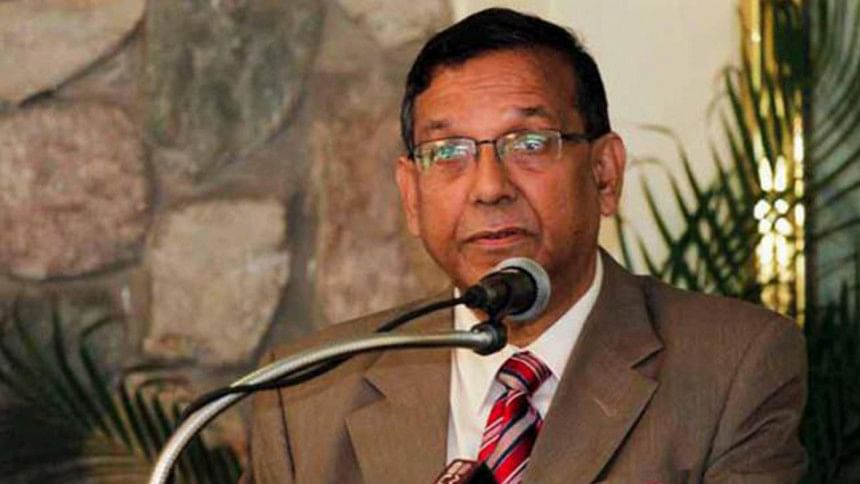
Law Minister Anisul Huq yesterday committed to placing the serious concerns of editors, journalists and media practitioners before the cabinet meeting to work out amendments to the recently passed digital security bill to make the law acceptable to all.
At a meeting with the Sampadak Parishad (Editors' Council), a platform of editors of national dailies, the minister also promised to sit with the editors and journalists in this regard.
“The next cabinet meeting, scheduled for October 3, may not discuss the issue as it already has many other agendas for discussions. But the concerns of the Editors' Council will be placed before the cabinet meeting after this one," he told reporters after the meeting.
Information Minister Hasanul Haq Inu, Posts, Telecommunications and Information Technology Minister Mustafa Jabbar, Prime Minister Sheikh Hasina's media adviser Iqbal Sobhan Chowdhury and acting secretary of Information Ministry Abual Hossain were also present at the three-hour meeting at the information ministry. Thirteen 13 editors of different dailies joined the discussions.
Inu had invited the Sampadak Parishad for talks over their concerns about the much-debated bill after the Council announced it would form a human chain before the Jatiya Press Club on September 29 protesting the passage of the bill.
However, upon the request from the information minister, the Parishad postponed its programme.
On September 22, the Parishad expressed its deep regret that the House passed the Digital Security Bill 2018, which the platform considers to be against media freedom and freedom of speech guaranteed by the constitution.
Earlier on September 16, the Council expressed its surprise, disappointment and shock at the final report of the Parliamentary Standing Committee on the Post, Telecommunication and ICT Ministry on the draft law.
The Council said the report "totally ignored" the concerns expressed by journalists and media organisations.
“We are forced to reject the said report as it suggested no fundamental changes to sections 8, 21, 25, 28, 29, 31, 32, and 43 of the Draft Act that pose serious threats to freedom of expression and media operation,” the Parishad said in a statement.
After the meeting with the Editors' Council, Inu and Jabbar also held talks with leaders of Bangladesh Federal Union of Journalists (BFUJ), Dhaka Union of Journalists and Dhaka Reporters Unity at the same venue over their concerns about the law.
Briefing reporters after the meeting, BFUJ President Molla Jalal said the journalist community would launch a stronger protest if the law was not amended in light of their concerns.
On September 19, parliament passed the bill despite opposition from several lawmakers of the main opposition Jatiya Party.
Journalists and rights activists also expressed serious concerns over the new law, saying it goes against the main spirit of the constitution and that the law will restrict free-thinking, freedom of speech and freedom of expression.
It will also impede independent journalism, they added.
Briefing reporters after the meeting with the Editors' Council, the law minister assured that the Council's objections to nine sections of the law and its demand for amending those would be placed before the cabinet for discussions.
"There is a need for a law like this and the Editors' Council at the meeting agreed on the necessity of section 21 of the act. But they demanded amendment to sections 8, 21, 25, 28, 29, 31, 32, 43 and 53.
"I'll place their demands at the cabinet meeting and we'll sit with the Editors' Council again over the terms of reference to be given by the cabinet," he added.
Inu said the Editors' Council expressed worries and registered objections to some sections.
"Prime Minister Sheikh Hasina is committed to ensuring freedom of the press and security of the media people. She is also firm about expansion of the media. To make that happen, we had asked them [Editors' Council and journalists] to sit in a meeting and they responded to our call," Inu said.
“We have prepared a list of the concern of the Editors' Council about the new law and need to meet the editors again for more discussions.
“The aim of the law is to combat digital crime with an iron hand. We want to build a safe digital Bangladesh without affecting the media,” he said.
Mahfuz Anam, general secretary of the Editors' Council and editor and publisher of The Daily Star, also spoke at the briefing.
"We have serious concerns about several sections of the act. We think these go against the spirit of the Liberation War and is in conflict with democratic rights.”
Mentioning that the Council published in detail their concerns, he called on everyone to go through the law and judge it for themselves whether it is a good or a bad law.
"They [the ministers] have heard us and agreed with us. About our objections, the law minister said he would place our objections or proposals before the cabinet meeting and then they would sit with us again," Mahfuz said, adding that the ministers assured them that they did not want to enact any law that is in conflict with democracy.
“We are hopeful that the law will be amended addressing our concerns. We are very much aware of the country's digital security and that a law is necessary for that. But that law should not deny freedom of the press as guaranteed in our constitution,” he said.

 For all latest news, follow The Daily Star's Google News channel.
For all latest news, follow The Daily Star's Google News channel. 

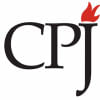
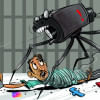
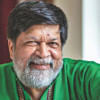
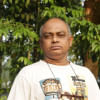



Comments